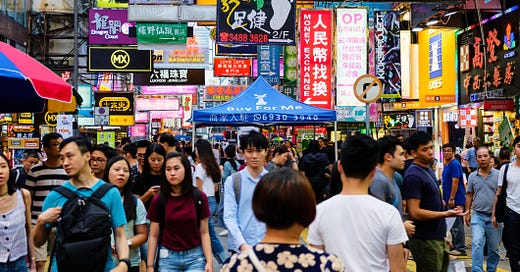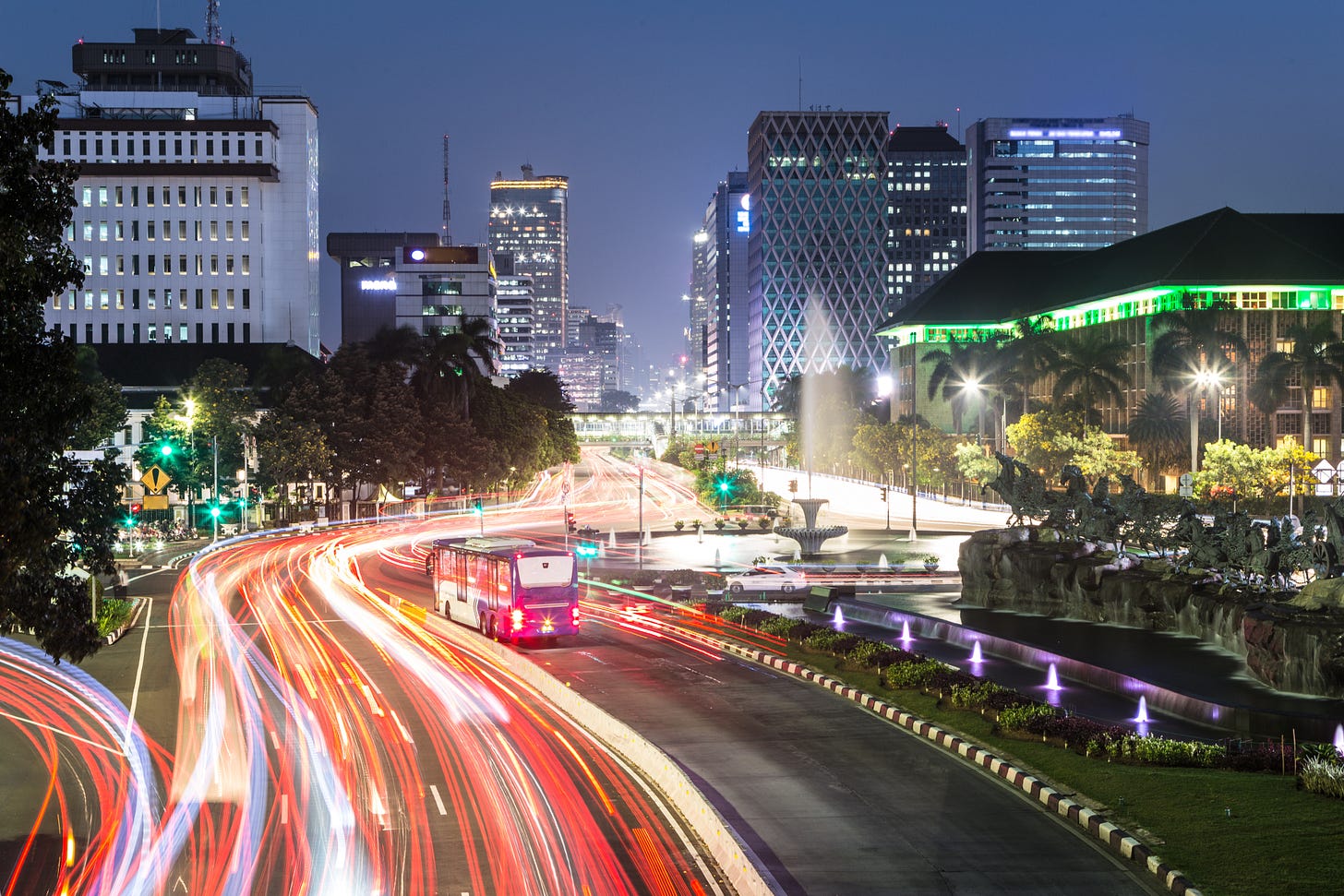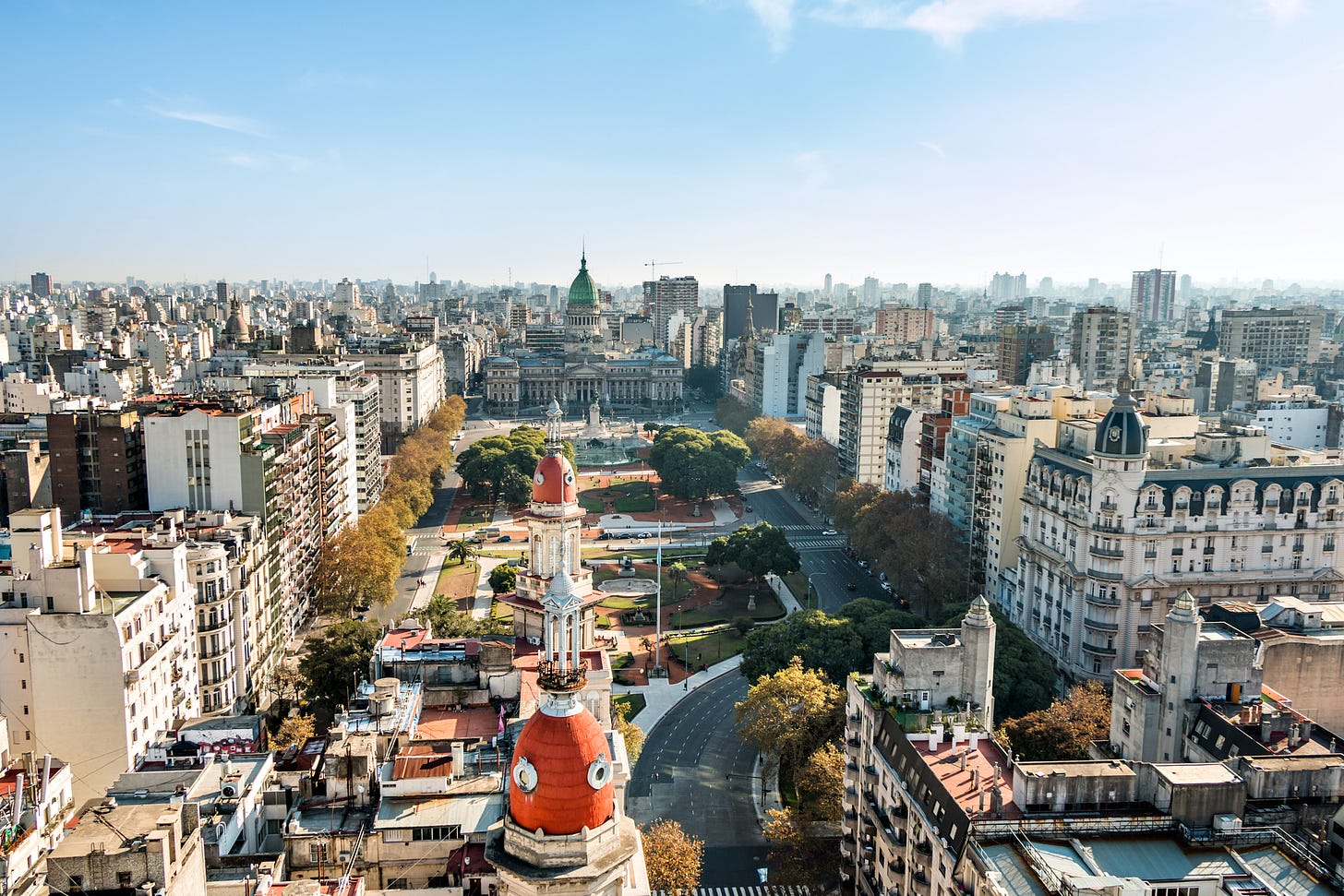Emerging Markets Daily - March 21
Ukraine War Tests Faith in EM's, Saudi Warns on Global Supply After Houthi Attack, Indonesia Opens Borders, China Eastern Grounds Boeing's, Argentina-IMF Deal
The Top 5 Stories Shaping Emerging Markets from Global Media - March 21
War in Ukraine Tests Faith in Emerging Markets
Wall Street Journal
“After rushing to unload their Russia investments, some big asset managers are taking a hard look at their exposure to other emerging markets.”
“Large investors and their advisers in recent years searched developing countries for higher returns and growth, particularly with U.S. stocks at elevated prices and U.S. bonds at historic low yields. Instead, losses last year from Chinese home builders and technology companies are being exacerbated by the Russia-Ukraine war. Now, after years of underperformance relative to some U.S. equivalents, some investors are questioning the role of emerging markets in their portfolios.”
“‘To what extent and at what point do we take into consideration—perhaps it’s during the asset allocation study—the risks associated with investing directly outside the United States?’ asked Harry Keiley, board chair of the California State Teachers’ Retirement System, at an investment committee meeting earlier this month.”
“Emerging-markets stocks returned 3.3% on an annualized basis over the past 10 years as of March 17, compared with 11.1% for global equities and 12.1% for U.S. midsize companies, according to indexes from MSCI and S&P Global.”
“‘The call on emerging markets outperforming has been disappointing,’ said Hayley Tran, co-head of equity research at Meketa Investment Group, a consultant to public pension plans and other institutional investors. ‘Both the earnings growth and the returns have not delivered…not to the extent we expected.’
“…Investors bought into emerging-markets bond mutual funds for most of the past decade—putting in about $55 billion in 2019—but they withdrew about $4 billion in 2021 and have pulled $7.3 billion so far this year, according to data from Lipper. Emerging-markets stock funds continue to attract interest, taking in a record $120.5 billion last year and $25 billion in 2022.” WSJ reports.
After More Houthi Attacks, Saudi Arabia Says Global Supplies Under Threat. Riyadh Says ‘International Community’ Should Understand ‘Gravity’ of Attacks.
The National
“Saudi Arabia will not bear any responsibility for shortages in crude supplies to global markets after attacks on its oil sites by the Houthi militia in Yemen, the kingdom said on Monday, pushing up oil prices further.”
“‘The kingdom stresses the importance of the international community realising the gravity of Iran’s continued behaviour of equipping the terrorist Houthi militias with the technology of the ballistic missiles, and advanced UAVs [unmanned aerial vehicles] with which they target the kingdom’s production sites of oil, gas and refined products,’ a statement from the Foreign Ministry said.”
"‘[This] results in serious consequences for upstream and downstream sectors, affecting the kingdom’s production capability and its ability to fulfill its commitments, undermining without a doubt the security and sustainability of energy supplies to global markets.’”
“Yemen’s Houthi rebels unleashed one of their most intense barrages of drone and missile strikes on Saudi Arabia’s critical energy plants on Sunday, sparking a fire at one site and temporarily cutting oil production at another.”
“The Saudi Arabia-led military coalition said Houthis attacked an Aramco liquefied gas plant in the Red Sea port of Yanbu, an oil storage plant in Jeddah, a desalination complex in Al Shuqaiq on the Red Sea coast and an Aramco oil installation in the southern border town of Jazan, among others.”
“Aramco, which announced on Monday that its annual net profit more than doubled in 2021, said it plans ‘substantial new investment’ to meet demand growth. The company aims to raise crude oil ‘maximum sustainable capacity’ to 13 million barrels per day by 2027 and potentially increase gas production by more than 50 per cent by 2030 as part of its growth strategy.” The National reports.
Indonesia Opens Its Borders After a Two Year Shutdown
Bloomberg
“Indonesia is lifting all quarantine rules for fully-vaccinated visitors to end two years of border closure, following its neighbors in easing entry restrictions as Southeast Asia moves past the worst of the omicron wave.”
“The government will expand its quarantine-free travels to the rest of the country following a successful two-week trial of the program in Bali, Batam and Bintan islands, where infections have remained low, Tourism Minister Sandiaga Uno said in his weekly briefing on Monday. Arriving visitors are still required to take the Covid-19 test.”
“Southeast Asia’s largest economy has steadily chipped away at its remaining virus restrictions, most recently by allowing domestic travelers to board flights without having to present negative test results. Daily coronavirus cases have dropped more than 90% from a mid-February peak, even as deaths remain high, reaching 154 people on Monday.” Grace Sihombing reports.
China Eastern Grounds All Boeing 787s After Deadly Crash.
Aviation Week
“A China Eastern Airlines Boeing 737-800 (s/n 41474, reg. B-1791) has crashed into the mountains near Wuzhou, southern China, the Civil Aviation Administration of China (CAAC) has confirmed.”
“MU5735 was carrying 123 passengers and nine crew members from Kunming to Guangzhou. The Guangxi Emergency Management Department told China Daily that the incident caused a ‘mountain fire’ and rescue teams had been deployed to the scene. The number of casualties is unclear.”
“The country’s state media CCTV reported that China Eastern will be grounding all 737-800s starting March 22, citing sources. China Eastern has 75 737-800s in its fleet, more than 80% in service.”
“‘Under normal circumstances, authorities would not ground all 737s after a crash unless there were reason to suspect a common problem,’ wrote Cowen & Co. analysts in a note. ‘Given BA’s [Boeing’s] problems with the 737 MAX, there is some chance that consumers may not want to fly on a 737 until the cause of the China Eastern crash is determined not to be a design or manufacturing issue. Hence, isolating the cause of the crash will be critical.’ CAAC was the first regulator in the world to ground the 737 MAX family following the second crash of the type in March 2019.”
“…Unverified CCTV footage apparently from a nearby building and vehicle dash-cam videos circulating online all show the 737 plunging toward the ground at a steep angle.” Chen Chuanren reports.
Argentina IMF Debt Deal To Be Discussed This Friday
Buenos Aires Times
“The International Monetary Fund's board of directors will meet Friday (March 25) to discuss Argentina's requested deal to restructure its US$45 billion debt.”
“Argentina's Senate on Thursday gave final approval to an agreement with the multilateral lender that restructures the debt, clearing the country's short-term financial horizon but leaving a serious inflationary challenge. The agreement now just needs signing by the IMF board of directors.”
“The agreement has further exposed a divide within the ruling coalition led by President Alberto Fernández, with several lawmakers in the far-left wing of the bloc voting against the deal. Still, the IMF applauded the vote passing through Congress.”
“The US$45-billion debt is the legacy of a record loan contracted in 2018 under former president Mauricio Macri. The agreement is the 13th that Buenos Aires has signed with the IMF since the return of democracy in 1983. If approved, it would be Argentina’s 22nd IMF programme in total.” BA Times reports.
“It’s no use going back to yesterday, because I was a different person then.”― Lewis Carroll





